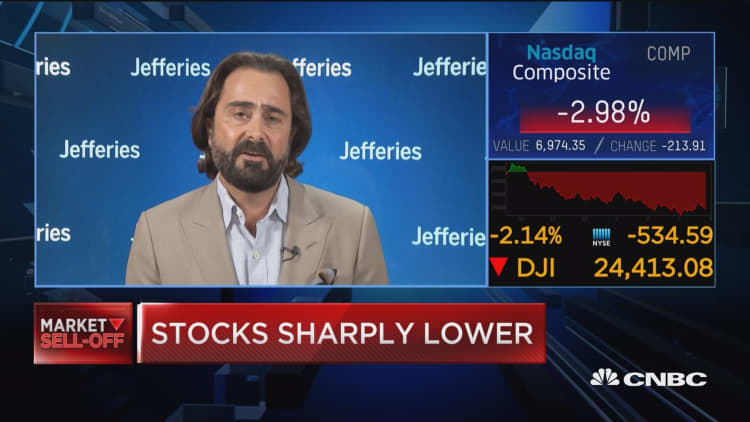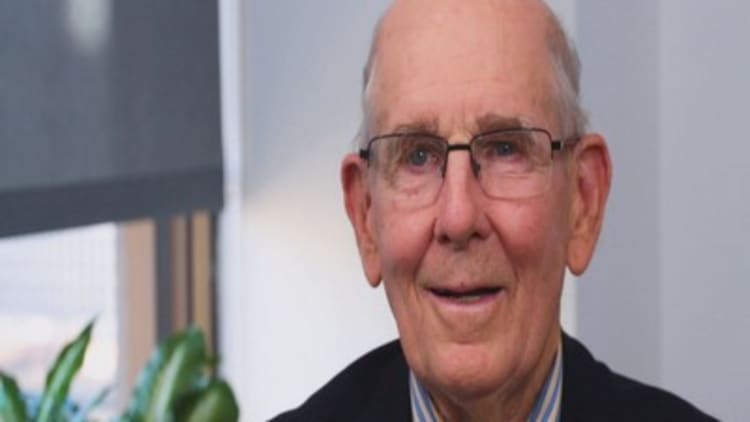St. Louis Federal Reserve President James Bullard said Friday the central bank could consider postponing its widely anticipated December rate hike because of an inverted yield curve.
"The current level of the policy rate is about right," Bullard said in a prepared presentation to the Indiana Banker's Association, according to Reuters.
In a question and answer session later, he suggested delaying the expected rate hike until January, Reuters said.

Bullard is the first member of the Fed to speak publicly about a delay. The St. Louis Fed president — while not a voting member of the policy-setting Federal Open Market Committee this year — will be able to do so in 2019.
On Monday, the 2-year Treasury yield moved past that of 5-year Treasury notes. A negatively sloped yield curve often signals an economic recession, though the time between inversion and GDP downturn has varied widely over decades.
As of Friday afternoon, the yield on the 2-year Treasury note held lower at 2.725 percent while the rate on the 5-year note was at 2.718 percent.
Bullard, a monetary policy dove, may be trying to persuade members of the FOMC that a more cautious approach to tightening will be necessary. Market participants see a 76.6 percent chance that the Fed will increase the overnight rate when it concludes its meeting on Dec. 19, according to the CME Group.
Fed Chairman Jerome Powell said on Nov. 28 that the central bank's overnight rate seemed to be near neutral, a marked difference from his October comment that interest rates were "a long way" from the level that neither stimulates nor restricts economic growth.
Click here for the original Reuters report.
WATCH: How the Fed could cause the next recession, according to Gary Shilling



